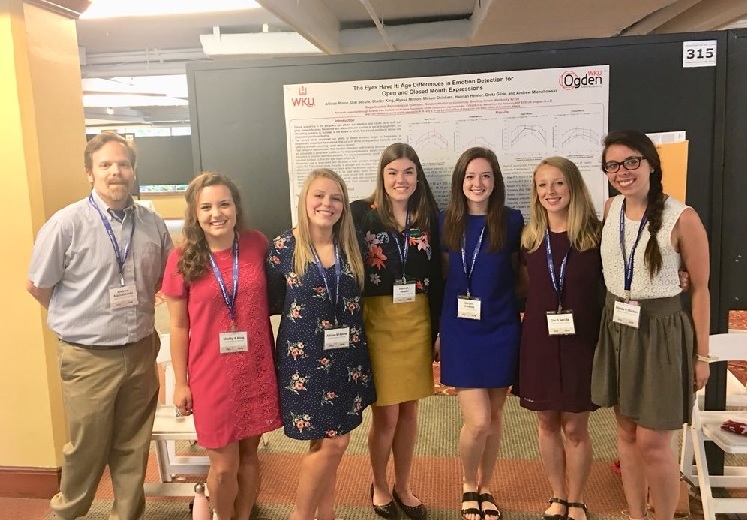Psychological Sciences
Lifespan Social Cognition Lab
The Lifespan Social Cognition Lab examines how social judgments, decisions, and emotion processing change throughout adulthood. With age, our experiences help us to make choices and react to others in social situations. At the same time, physical and cognitive changes can impair how we attend to and use information. Our research examines these two competing forces to explain how they interact to influence the judgments and decisions that individuals make when faced with laboratory tasks that have been designed to capture the everyday social processes in which we are regularly engaged.

Emotion Recognition
Recognizing emotions in the faces of others is important to interpersonal communication, both for accomplishing one's own personal goals as well as for determining the intentions of others. Many factors - like emotion regulatory skills, personality characteristics, personal beliefs, and symptoms of psychopathology - can impact the perception process. The breadth of our language for emotion can also impact the emotions we perceive in the faces of others.
Cognition/Emotion Interactions
We also investigate how the emotional character of stimuli impact the deployment of attention in tasks where emotion is sometimes directly relevant to our goals and sometimes irrelevant to our goals. Changes in how we prioritize emotional information in the latter half of life influence our attention to emotional cues in our environment. Moreover, our subjective reactions to faces, emotional scenes, and even descriptions of risk (e.g., investments, relationships, etc.) can influence our interpretation of these stimuli.
Students Gain Experience
Students working on projects in the lab gain hands-on experience working one-on-one with Dr. Mienaltowski and their peers. The lab's focus is primarily on the experimental psychology of emotion perception.
Some of the key skills that both undergraduate and graduate students develop when working in the lab include:
- critical analysis of journal articles to understand how study design contributes to theory development
- training in the use of stimulus presentation packages - like PsychoPy and PsyToolkit - to code cognitive tasks to administer on a computer to participants in the lab and online
- techniques for data processing and use of analysis software
Note that students considering this research lab should be sure that they have time available in their schedules between 9AM and 5PM during the week. Students interested in working on an independent study should complete this application and email it to Dr. Mienaltowski. Preference is given to students majoring in Psychological Science, but other Ogden College of Science and Engineering students are welcome to apply.
Students interested in graduate studies at WKU who are considering Dr. Mienaltowski as their thesis mentor should specify this when applying to the program. This experience is ideal for students interested in studying cognitive aging, especially in relation to emotion recognition in adulthood.

